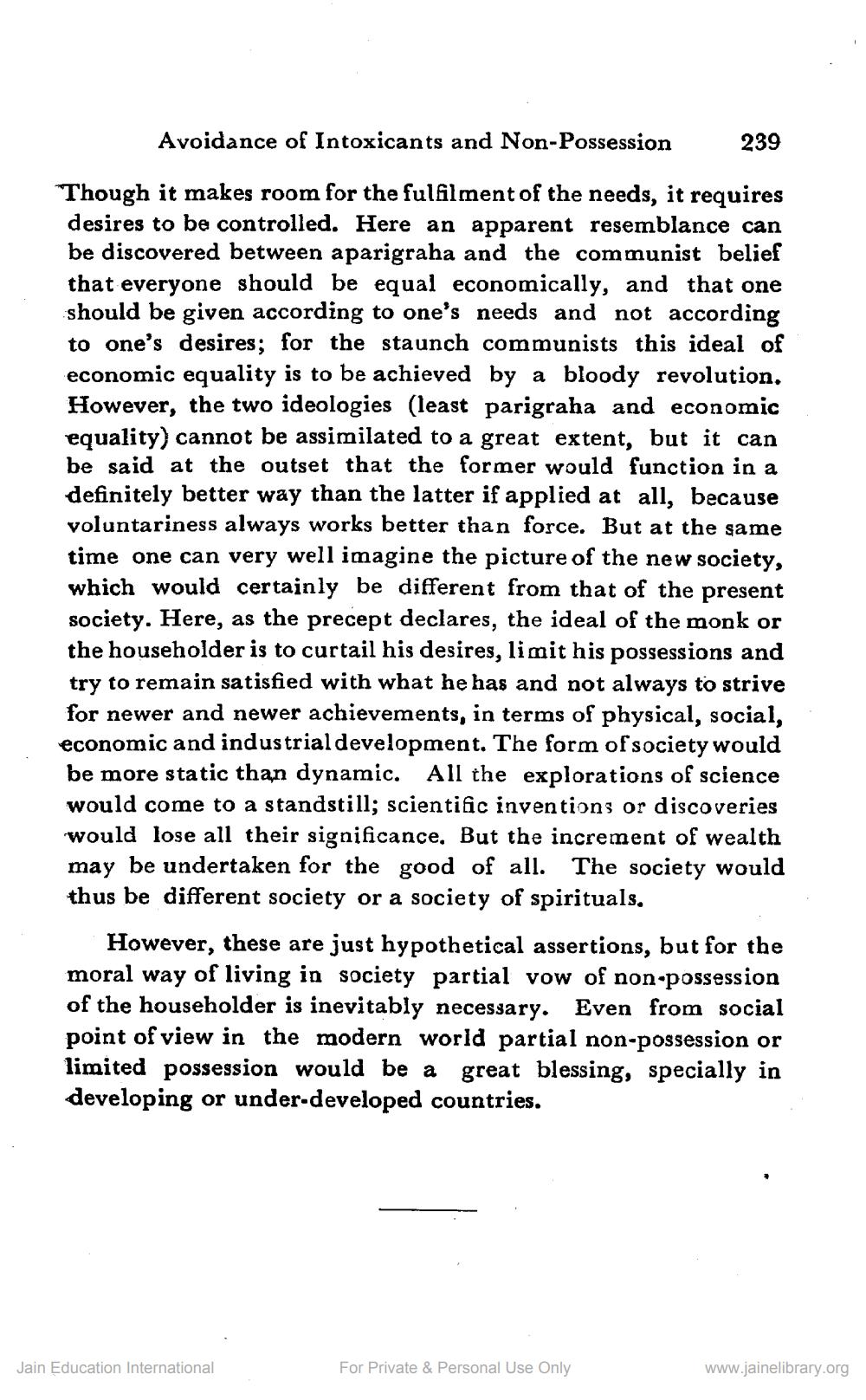________________
Avoidance of Intoxicants and Non-Possession
239
"Though it makes room for the fulfilment of the needs, it requires desires to be controlled. Here an apparent resemblance can be discovered between aparigraha and the communist belief that everyone should be equal economically, and that one should be given according to one's needs and not according to one's desires; for the staunch communists this ideal of economic equality is to be achieved by a bloody revolution, However, the two ideologies (least parigraha and economic equality) cannot be assimilated to a great extent, but it can be said at the outset that the former would function in a definitely better way than the latter if applied at all, because voluntariness always works better than force. But at the same time one can very well imagine the picture of the new society, which would certainly be different from that of the present society. Here, as the precept declares, the ideal of the monk or the householder is to curtail his desires, limit his possessions and try to remain satisfied with what he has and not always to strive for newer and newer achievements, in terms of physical, social, economic and industrial development. The form of society would be more static than dynamic. All the explorations of science would come to a standstill; scientific inventions or discoveries would lose all their significance. But the increment of wealth may be undertaken for the good of all. The society would thus be different society or a society of spirituals.
However, these are just hypothetical assertions, but for the moral way of living in society partial vow of non-possession of the householder is inevitably necessary. Even from social point of view in the modern world partial non-possession or limited possession would be a great blessing, specially in developing or under-developed countries.
Jain Education International
For Private & Personal Use Only
www.jainelibrary.org




